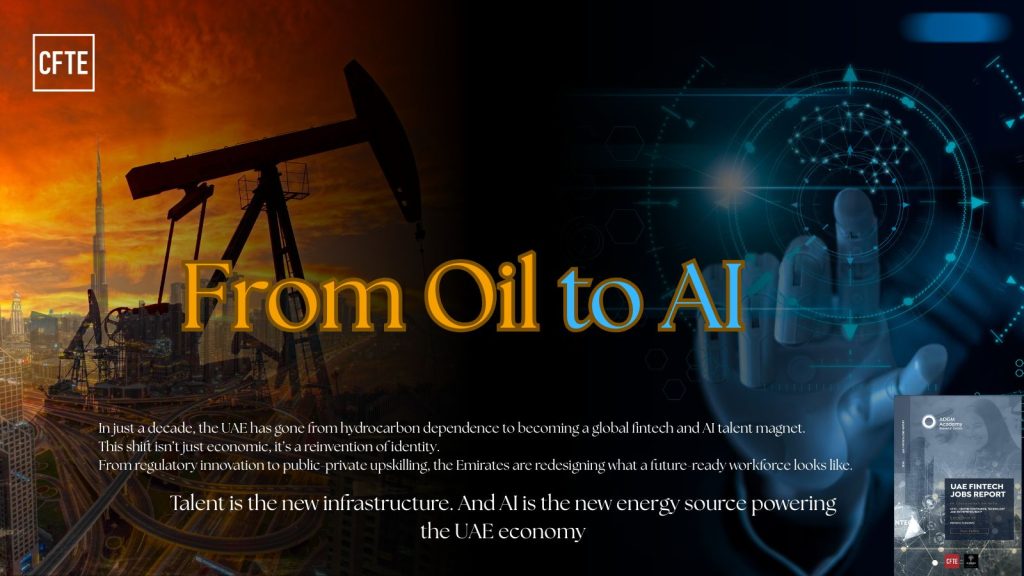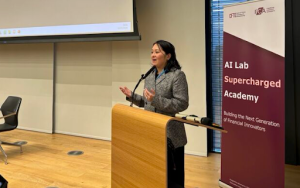
For decades, the Gulf economies were defined by their oil wealth. But today, as global finance and technology reshape what economic power looks like, a very different asset is taking centre stage: human capital.
Across the United Arab Emirates, a new wave of high-skill, technology-driven financial jobs is emerging — and the speed and scale of this transformation is catching the attention of the global fintech community.
So what’s behind this shift? And what does the UAE’s evolving job market tell us about the future of work, finance, and digital talent in the Gulf?
The Fintech Workforce Revolution in the Gulf
The UAE is not only building skyscrapers and financial free zones — it’s building a digitally fluent workforce. The country’s strategic investment in fintech talent reflects a clear policy ambition: to future-proof its financial sector through technology, while reducing reliance on hydrocarbons.
The UAE Fintech Job Report reveals a compelling pattern. In just a few years, fintech has moved from niche to mainstream, with key hubs like Abu Dhabi Global Market (ADGM) and Dubai International Financial Centre (DIFC) attracting startups, digital banks, and global players.
But beyond investment and infrastructure, it’s talent that’s becoming the UAE’s most strategic asset.
What the Data Tells Us
The report shows that:
- Technical and hybrid roles are booming: Jobs in AI engineering, compliance tech, cybersecurity, and digital payments are rapidly increasing.
- Regulatory and policy expertise is in demand: With the UAE becoming a sandbox for digital asset regulation, roles in regtech, crypto compliance, and sustainable finance are growing.
- Fintech roles are not just tech roles: Many roles require cross-domain fluency — combining finance, data, and regulatory know-how with an innovation mindset.
What’s emerging is a hybrid workforce: part finance, part tech, and fully global. These aren’t just jobs — they’re indicators of a rewired financial ecosystem.
A Talent Magnet — With Regional Ripple Effects
Why is this important beyond the UAE?
Because the country’s strategy is being watched — and, in many cases, emulated — by other Gulf nations pursuing similar diversification paths. From Saudi Arabia’s Vision 2030 to Bahrain’s regulatory experiments, the UAE is setting the precedent for a new model of economic competitiveness rooted in AI fluency, startup agility, and public-private alignment.
This isn’t just about fintech. It’s about how regions once dependent on commodities are now investing in capability — especially digital capability — to lead in a future shaped by automation, green finance, and AI regulation.
The Role of AI Readiness
One of the most telling aspects of the UAE’s fintech jobs landscape is the growing emphasis on AI literacy. Employers are not just looking for data scientists — they’re looking for financial professionals who understand how generative AI is reshaping compliance, customer journeys, and credit analysis.
In response, the UAE is fostering an environment where:
- AI skills are embedded in financial education and training
- Regulators are experimenting with AI policy frameworks
- Institutions are piloting AI-based tools for internal workflows and external services
The result? A country that is not only using AI but actively shaping its governance — a crucial signal for future employers and talent alike.
Challenges to Watch
Of course, the road ahead isn’t frictionless.
Despite significant progress, challenges remain:
- Mismatch between education and industry demand
- Unequal access to upskilling opportunities for youth and women
- Global talent competition — especially from markets like Singapore and the UK
To remain competitive, the UAE will need to double down on inclusive, lifelong learning models and policy coordination between education, employers, and government.
Why This Matters
The UAE’s fintech talent strategy offers a preview of the new global currency: skills aligned with innovation, regulation, and impact.
It’s not just about more jobs — it’s about better jobs. It’s about building a workforce that can navigate AI disruption, shape inclusive digital economies, and collaborate across borders.
For other regions, the UAE story is both a case study and a call to action.
Because in the race for fintech leadership, talent is the true infrastructure.


